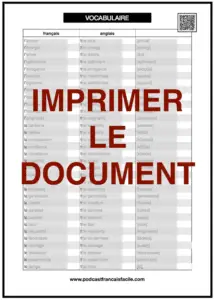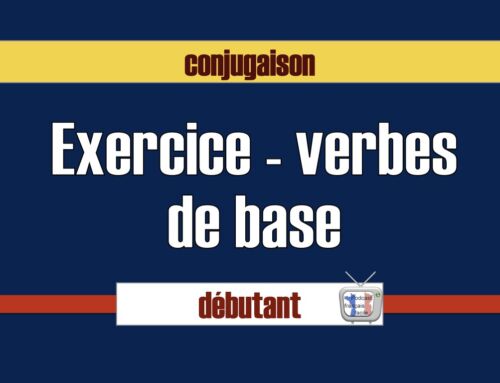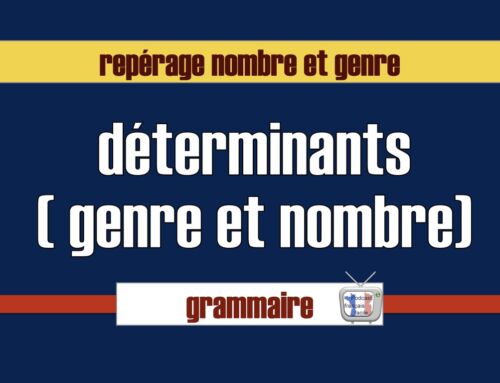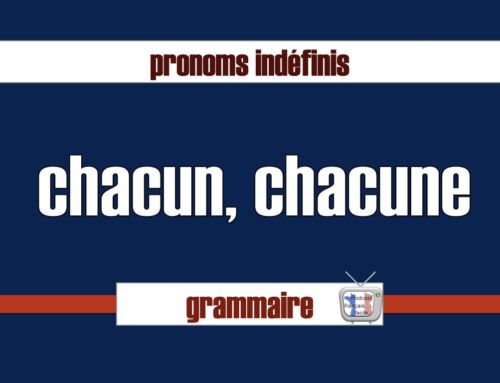
1. C’est un livre qui m’a beaucoup aidé.
- Anglais : This is a book that really helped me.
- Allemand : Das ist ein Buch, das mir sehr geholfen hat.
- Espagnol : Es un libro que me ayudó mucho.
2. La femme que tu as rencontrée est ma professeure.
- Anglais : The woman whom you met is my teacher.
- Allemand : Die Frau, die du getroffen hast, ist meine Lehrerin.
- Espagnol : La mujer que conociste es mi profesora.
3. Voici le village où je suis né.
- Anglais : Here is the village where I was born.
- Allemand : Hier ist das Dorf, in dem ich geboren wurde.
- Espagnol : Aquí está el pueblo donde nací.
4. C’est un sujet dont nous avons déjà parlé.
- Anglais : This is a topic that we have already talked about.
- Allemand : Das ist ein Thema, über das wir schon gesprochen haben.
- Espagnol : Es un tema del que ya hemos hablado.
5. L’homme qui habite ici est médecin.
- Anglais : The man who lives here is a doctor.
- Allemand : Der Mann, der hier wohnt, ist Arzt.
- Espagnol : El hombre que vive aquí es médico.
6. Les clés que j’ai trouvées appartiennent à mon voisin.
- Anglais : The keys that I found belong to my neighbor.
- Allemand : Die Schlüssel, die ich gefunden habe, gehören meinem Nachbarn.
- Espagnol : Las llaves que encontré pertenecen a mi vecino.
7. La ville où ils vivent est très agréable.
- Anglais : The city where they live is very pleasant.
- Allemand : Die Stadt, in der sie leben, ist sehr angenehm.
- Espagnol : La ciudad donde viven es muy agradable.
8. Il a une sœur dont il est très fier.
- Anglais : He has a sister he is very proud of.
- Allemand : Er hat eine Schwester, auf die er sehr stolz ist.
- Espagnol : Tiene una hermana de la que está muy orgulloso.
9. La voiture qui est garée devant la maison est à Paul.
- Anglais : The car that is parked in front of the house belongs to Paul.
- Allemand : Das Auto, das vor dem Haus geparkt ist, gehört Paul.
- Espagnol : El coche que está aparcado delante de la casa es de Paul.
10. Voilà le film que nous avons vu hier soir.
- Anglais : Here’s the movie that we saw last night.
- Allemand : Hier ist der Film, den wir gestern Abend gesehen haben.
- Espagnol : Aquí está la película que vimos anoche.
11. L’hôtel où nous logeons a une piscine.
- Anglais : The hotel where we are staying has a pool.
- Allemand : Das Hotel, in dem wir wohnen, hat einen Pool.
- Espagnol : El hotel donde nos alojamos tiene una piscina.
12. Voici un auteur dont les livres sont passionnants.
- Anglais : Here is an author whose books are fascinating.
- Allemand : Hier ist ein Autor, dessen Bücher fesselnd sind.
- Espagnol : Aquí hay un autor cuyos libros son fascinantes.
13. Le professeur qui nous enseigne le français est canadien.
- Anglais : The teacher who teaches us French is Canadian.
- Allemand : Der Lehrer, der uns Französisch unterrichtet, ist Kanadier.
- Espagnol : El profesor que nos enseña francés es canadiense.
14. C’est un problème que nous devons résoudre rapidement.
- Anglais : This is a problem that we need to solve quickly.
- Allemand : Das ist ein Problem, das wir schnell lösen müssen.
- Espagnol : Es un problema que debemos resolver rápidamente.
15. L’année où j’ai déménagé, j’ai rencontré beaucoup de nouvelles personnes.
- Anglais : The year when I moved, I met many new people.
- Allemand : In dem Jahr, in dem ich umgezogen bin, habe ich viele neue Leute kennengelernt.
- Espagnol : El año en que me mudé conocí a muchas personas nuevas.
16. Elle connaît un artisan dont le travail est remarquable.
- Anglais : She knows a craftsman whose work is remarkable.
- Allemand : Sie kennt einen Handwerker, dessen Arbeit bemerkenswert ist.
- Espagnol : Conoce a un artesano cuyo trabajo es notable.
17. Le musée qui se trouve au centre-ville est gratuit.
- Anglais : The museum that is downtown is free.
- Allemand : Das Museum, das sich in der Innenstadt befindet, ist kostenlos.
- Espagnol : El museo que está en el centro es gratuito.
18. Le repas que tu as préparé était délicieux.
- Anglais : The meal that you prepared was delicious.
- Allemand : Das Essen, das du zubereitet hast, war köstlich.
- Espagnol : La comida que preparaste estaba deliciosa.
19. C’est le parc où les enfants aiment jouer.
- Anglais : This is the park where children like to play.
- Allemand : Das ist der Park, in dem Kinder gern spielen.
- Espagnol : Este es el parque donde a los niños les gusta jugar.
20. J’ai lu un article dont je voulais te parler.
- Anglais : I read an article that I wanted to tell you about.
- Allemand : Ich habe einen Artikel gelesen, über den ich mit dir sprechen wollte.
- Espagnol : Leí un artículo del que quería hablarte.
21. C’est un chemin par lequel on peut accéder à la plage.
- Anglais : This is a path through which you can reach the beach.
- Allemand : Das ist ein Weg, durch den man zum Strand gelangen kann.
- Espagnol : Es un camino por el cual se puede llegar a la playa.
22. Voici la raison pour laquelle je suis venu.
- Anglais : Here is the reason why I came.
- Allemand : Hier ist der Grund, weshalb ich gekommen bin.
- Espagnol : Aquí está la razón por la cual vine.
23. La table sur laquelle tu écris est ancienne.
- Anglais : The table on which you are writing is old.
- Allemand : Der Tisch, auf dem du schreibst, ist alt.
- Espagnol : La mesa en la que escribes es antigua.
24. Les personnes auxquelles j’ai parlé sont très aimables.
- Anglais : The people to whom I spoke are very kind.
- Allemand : Die Personen, mit denen ich gesprochen habe, sind sehr freundlich.
- Espagnol : Las personas a las que hablé son muy amables.
25. L’enfant à qui elle a offert un cadeau est son neveu.
- Anglais : The child to whom she gave a gift is her nephew.
- Allemand : Das Kind, dem sie ein Geschenk gemacht hat, ist ihr Neffe.
- Espagnol : El niño a quien le hizo un regalo es su sobrino.
26. C’est une histoire à laquelle je pense souvent.
- Anglais : This is a story that I often think about.
- Allemand : Das ist eine Geschichte, an die ich oft denke.
- Espagnol : Esta es una historia en la que pienso a menudo.
27. Le pays auquel il se rend chaque été est magnifique.
- Anglais : The country to which he travels every summer is beautiful.
- Allemand : Das Land, in das er jeden Sommer reist, ist wunderschön.
- Espagnol : El país al que viaja cada verano es magnífico.
28. Les amis avec qui nous avons voyagé sont formidables.
- Anglais : The friends with whom we traveled are wonderful.
- Allemand : Die Freunde, mit denen wir gereist sind, sind großartig.
- Espagnol : Los amigos con quienes viajamos son formidables.
29. Le projet auquel ils participent est innovant.
- Anglais : The project in which they are involved is innovative.
- Allemand : Das Projekt, an dem sie teilnehmen, ist innovativ.
- Espagnol : El proyecto en el que participan es innovador.
30. C’est un problème contre lequel nous devons lutter.
- Anglais : This is a problem against which we must fight.
- Allemand : Das ist ein Problem, gegen das wir kämpfen müssen.
- Espagnol : Es un problema contra el que debemos luchar.
31. Voici le tableau devant lequel les touristes s’arrêtent.
- Anglais : Here is the painting in front of which tourists stop.
- Allemand : Hier ist das Gemälde, vor dem die Touristen stehen bleiben.
- Espagnol : Aquí está el cuadro delante del cual se detienen los turistas.
32. La personne sans qui rien n’aurait été possible est mon frère.
- Anglais : The person without whom nothing would have been possible is my brother.
- Allemand : Die Person, ohne die nichts möglich gewesen wäre, ist mein Bruder.
- Espagnol : La persona sin la cual nada habría sido posible es mi hermano.
33. Les enfants parmi lesquels il y a ma fille jouent dans le jardin.
- Anglais : The children, among whom is my daughter, are playing in the garden.
- Allemand : Die Kinder, unter denen auch meine Tochter ist, spielen im Garten.
- Espagnol : Los niños, entre los cuales está mi hija, juegan en el jardín.
34. La maison près de laquelle il habite est en vente.
- Anglais : The house near which he lives is for sale.
- Allemand : Das Haus, in dessen Nähe er wohnt, steht zum Verkauf.
- Espagnol : La casa cerca de la cual vive está en venta.
35. L’arbre sous lequel nous avons pique-niqué est centenaire.
- Anglais : The tree under which we had a picnic is a hundred years old.
- Allemand : Der Baum, unter dem wir gepicknickt haben, ist hundert Jahre alt.
- Espagnol : El árbol bajo el cual hicimos un picnic tiene cien años.
36. Le village à côté duquel passe la rivière est charmant.
- Anglais : The village next to which the river flows is charming.
- Allemand : Das Dorf, an dem der Fluss vorbeifließt, ist reizend.
- Espagnol : El pueblo al lado del cual pasa el río es encantador.
37. C’est une musique grâce à laquelle je me détends.
- Anglais : This is music thanks to which I relax.
- Allemand : Das ist eine Musik, dank der ich mich entspanne.
- Espagnol : Es una música gracias a la cual me relajo.
38. Les vacances pendant lesquelles nous avons voyagé étaient inoubliables.
- Anglais : The holidays during which we traveled were unforgettable.
- Allemand : Die Ferien, während derer wir gereist sind, waren unvergesslich.
- Espagnol : Las vacaciones durante las cuales viajamos fueron inolvidables.
39. Le jour où nous nous sommes rencontrés reste gravé dans ma mémoire.
- Anglais : The day when we met remains etched in my memory.
- Allemand : Der Tag, an dem wir uns getroffen haben, bleibt in meiner Erinnerung eingeprägt.
- Espagnol : El día en que nos conocimos queda grabado en mi memoria.
40. Le film dont je t’ai parlé passe à la télévision ce soir.
- Anglais : The movie I told you about is on TV tonight.
- Allemand : Der Film, von dem ich dir erzählt habe, läuft heute Abend im Fernsehen.
- Espagnol : La película de la que te hablé pasa en la televisión esta noche.
41. La personne qui a téléphoné a laissé un message.
- Anglais : The person who called left a message.
- Allemand : Die Person, die angerufen hat, hat eine Nachricht hinterlassen.
- Espagnol : La persona que llamó dejó un mensaje.
42. Les fleurs que tu as plantées commencent à pousser.
- Anglais : The flowers that you planted are starting to grow.
- Allemand : Die Blumen, die du gepflanzt hast, fangen an zu wachsen.
- Espagnol : Las flores que plantaste están empezando a crecer.
43. L’endroit où nous avons mangé était très accueillant.
- Anglais : The place where we ate was very welcoming.
- Allemand : Der Ort, wo wir gegessen haben, war sehr einladend.
- Espagnol : El lugar donde comimos era muy acogedor.
44. La chanteuse dont tout le monde parle vient de sortir un nouvel album.
- Anglais : The singer everyone is talking about has just released a new album.
- Allemand : Die Sängerin, über die alle sprechen, hat gerade ein neues Album herausgebracht.
- Espagnol : La cantante de la que todo el mundo habla acaba de sacar un nuevo álbum.
45. L’homme à qui j’ai prêté mon livre me l’a rendu hier.
- Anglais : The man to whom I lent my book returned it to me yesterday.
- Allemand : Der Mann, dem ich mein Buch geliehen habe, hat es mir gestern zurückgegeben.
- Espagnol : El hombre a quien le presté mi libro me lo devolvió ayer.
46. La raison pour laquelle il a quitté la ville reste inconnue.
- Anglais : The reason why he left the city remains unknown.
- Allemand : Der Grund, weshalb er die Stadt verlassen hat, bleibt unbekannt.
- Espagnol : La razón por la cual se fue de la ciudad sigue siendo desconocida.
47. Les objets auxquels il tient sont dans cette boîte.
- Anglais : The objects that he cares about are in this box.
- Allemand : Die Gegenstände, die ihm wichtig sind, sind in dieser Schachtel.
- Espagnol : Los objetos a los que él aprecia están en esta caja.
48. Le banc sur lequel nous étions assis a été repeint.
- Anglais : The bench on which we were sitting has been repainted.
- Allemand : Die Bank, auf der wir saßen, wurde neu gestrichen.
- Espagnol : El banco en el que estábamos sentados ha sido repintado.
49. Les personnes avec qui tu étais sont mes cousins.
- Anglais : The people you were with are my cousins.
- Allemand : Die Leute, mit denen du warst, sind meine Cousins.
- Espagnol : Las personas con las que estabas son mis primos.
50. L’année pendant laquelle j’ai étudié à l’étranger a changé ma vie.
- Anglais : The year during which I studied abroad changed my life.
- Allemand : Das Jahr, in dem ich im Ausland studiert habe, hat mein Leben verändert.
- Espagnol : El año durante el cual estudié en el extranjero cambió mi vida.

✚ Opposition relatifs qui / que
✚ Pronoms relatifs composés
![]()




